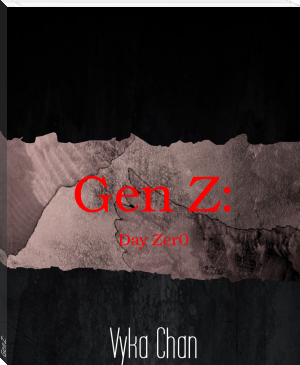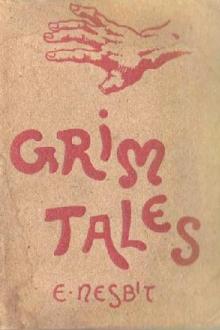Callisto 2.0 - Susan English (sad books to read .txt) 📗

- Author: Susan English
- Performer: -
Book online «Callisto 2.0 - Susan English (sad books to read .txt) 📗». Author Susan English
Everyone nodded.
“Now that we have our definitions, who wants to start?”
Kamana raised her hand, and Izumi acknowledged her with a nod. “We can disregard the first definition, too, since Buddhism isn’t about worshiping any supernatural power.”
“But don’t Buddhists worship the Buddha?” asked Jordyn.
“No,” Kamana said, shaking her head. “It’s more like …,” she paused for a moment, rubbing her chin with her thumb and forefinger, then continued. “Some people worship the Buddha out of respect for his achievements as a human being rather than because they consider him a deity. Thinking about it, I don’t know whether I would call Buddhism a philosophy, either. It’s a way of life, if anything, and a beautiful one at that.
It’s all about trying your best to live ethically.”
“What I always found intriguing about Buddhism,” said Raven, “is it’s a world view where the practitioner tries to see reality for what it is, instead of through our cultural or personal lenses.”
“Sounds a lot like science,” said Jordyn.
“I think it has more to do with understanding and training the human mind,” said Fae.
Marta turned to Fae, brow furrowed. “What do you mean by ‘training the mind’?”
“The key is awareness. A basic Buddhist concept is we create our own suffering—
the problem is we are constantly making up stories in our heads which lead to more suffering. By training our minds, through meditation for example, and becoming more aware, we can stop the cycle of suffering within ourselves, stop the stories.”
“But there’s lots of suffering in the world that has nothing to do with the mind,” said Marta.
“That’s true,” said Fae. “If I break my arm, it’s going to hurt. Physical suffering is inevitable. What I’m talking about is the additional suffering created by our minds. For example, I might think: Oh no, my arm is broken. Now how can I work? How am I going to take care of myself? What if my arm never heals? What if the pain gets worse? See? My preoccupation causes more suffering.”
“That’s interesting, what you’re saying, Fae,” said Gamon. “It’s true from a physiological standpoint, if a patient is stressed out, the healing takes longer, and also the perception of pain is greater. I’ve read studies of people who have used meditation to control pain after an injury, or even chronic pain, and the success rate is impressive.
When the patients are interviewed, they usually say the pain isn’t any less, but their relationship to the pain has changed. They aren’t so preoccupied with it. They sort of separate themselves from the pain, and watch it, instead of participating in it. It’s 161
fascinating.”
“Perhaps a statue of the Buddha is appropriate,” said Naomi. “The name of the station is Shambhala, after all. I haven’t got a problem with it.”
“Tanya, would you like to say something?” said Izumi.
“Yeah, so back to my initial statement. For me, having the statue isn’t about religion at all. I agree with Kamana that Buddhism embodies the second definition, because Buddhism isn’t about a supernatural deity or power, but it is a set of beliefs and practices. A practitioner of Buddhism doesn’t follow the precepts blindly—on the contrary. It’s all about the scientific method,” she glanced over at Jordyn, “with ourselves as our own test subjects. From my understanding of basic Buddhist teachings, a Buddha is any being that has reached a state of enlightenment. Now don’t ask me to tell you what that is, I’m definitely not there!”
A smattering of good-natured laughter filled the room.
“Anyone can be a Buddha,” Tanya continued. “There was nothing supernatural about Siddhartha Gautama, the first historical Buddha, but he was an exceptional human being. For me, a statue of the Buddha is a reminder that enlightenment is attainable for all of us. But I’m not attached to the idea of the statue, I just thought it might be a nice touch.”
“Thanks, Tanya,” said Izumi. “Any thoughts?” She looked at each of us.
Zoe raised her hand.
“Zoe?” said Izumi.
“I appreciate Tanya’s point of view, but I’m leaning toward not having a physical statue. I like the park the way it is.”
“I have an idea that might work,” said Andrea. “What if, every Sunday at nine a.m., we project a holographic image of the Buddha in the park for, say, two hours?”
“That’s a splendid suggestion, Andrea,” said Izumi. “Any other ideas or thoughts?”
Elena lifted her hand. “Elena?”
She stood up, blushing slightly. It wasn’t easy for her, being in front of a crowd, even though we were her crewmates, her clan. I leaned forward. Whatever she said, it was worth listening to. “Although I’m not opposed to the idea, I don’t think we need a statue, holographic or otherwise.” She turned to Tanya. “From what you describe, it seems to me that, according to Buddhism, enlightenment is attainable for any sentient being, and I’m confident you don’t need an external reminder of the power that’s already inside you. You are a beautiful woman, a being of pure light, and I believe you are your own Buddha.”
Tanya’s eyes filled with tears, and she went over to Elena and wrapped her arms around her, hugging her tightly. “Thank you, Elena.” She took a breath. “I’m okay with leaving the park as it is. I love all of you so much.”
“Anyone still feeling like she wants a statue?” asked Izumi. Several women shook their heads, including me. “Thank you all,” she said, “and thank you, Tanya, for bringing up the idea. This was an outstanding discussion. I, for one, am planning on being in the 162
park at nine a.m. this Sunday.”
As we were filing out after the meeting, Naomi said, “So, Calli, are you thinking of going to the meditation?”
I shrugged. “I don’t know, probably not. It doesn’t sound like something I’d be interested in. Shutting off my brain doesn’t seem to be an option for me.”
“That’s not what it is,” said Kamana, who was right behind us. “It’s more about observing how your brain works, without judgment or attachment, with gentle nudges to return to the present when your thoughts start wandering.”
Naomi laughed. “Calli has a brain built for wandering.”
“It’s true.” I admitted.
“Who knows,” said Kamana, “you might like it.”
“Yeah, maybe.”
“Perhaps we can give it a go one of these days,” said Naomi, smiling at me.
163
The warp drive for Charm had worked perfectly, expanding and contracting space just as we had programmed it to do. The next step was to modify the warp-field generator to account for the greater mass of the transport vessel. I was secretly half-dreading this part, because the astronauts for the next trial would be mice. But we needed to determine if there would be any adverse effects on biological organisms.
The engineers had the plans ready for the vessel, they only needed to print the parts using the 3D printers and assemble it. That would take a few weeks. Meanwhile, Hadley and I focused on the warp drive specs. The transport vessel wasn’t much larger than Charm, but we still weren’t sure how the bubble would scale, and needed to run the calculations and computer simulations. Once the vessel and drive were ready, our strategy was to do a few test runs before we sent our furry friends.
Naomi and I were sitting at the conference table in her lab one Friday afternoon, discussing her ideas for the mouse living quarters in the transport vessel, when she threw up her hands in exasperation. “We can’t keep calling it ‘the transport vessel’! The probe has a name, the transport vessel needs one as well.”
“Hey, I’m open to suggestions.”
Naomi looked at the ceiling, tapping her finger against her chin. “Something to do with Greek mythology, I suppose, since all the mice are named after Greek goddesses.”
I waited expectantly.
“Argo comes to mind, Homer’s ship. But no, I have a better name. How about
‘Soteria’?”
“I have no idea what that is.”
“No, I don’t suppose you would have heard of it. It’s a bit obscure. But I think it fits. Soter was the god of protection from bodily harm. Soteria is the feminine version, the embodiment of the sentiments.”
“I don’t know how you store so much information in that skull of yours.” I tapped Naomi’s head affectionately. “How is it you know so much about Greek mythology?”
Naomi shrugged. “Childhood passion. My brother and I used to enjoy reading the stories aloud to each other before going to bed. I also took a couple courses at uni.”
“What was the word again?” I asked.
“Soteria.”
“Fine with me. I like the symbolism. I don’t want anything to happen to the mice, that’s for sure.”
“That’s why I thought of it,” said Naomi. “I want them to be safe.”
I hoped the vessel would live up to its new name, and our mice would return to us unscathed, delivered from harm.
“Hey!” said Naomi, her face brightening. “I just had an idea!”
“What? Another name?” I cocked my head.
164
“Nah, the name’s sorted already.” She smiled. “Why don’t you come to the Moon with me tonight? You can meet Simon! We’re going to The Sunspot, it’s a new bar in Sector Eight.”
“Sure, sounds like fun.”
◆◆◆
When we got to the bar, Naomi paused in the doorway, scanning the room. Her face lit up when she spotted Simon sitting at a table along the wall, waving enthusiastically.
He stood to greet us as we





Comments (0)